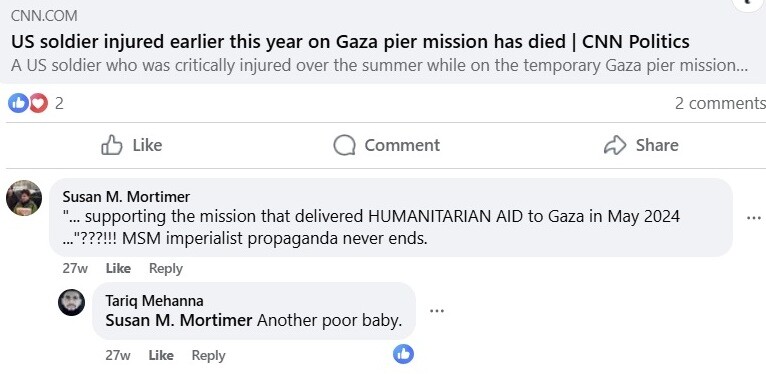A mosque has taken a divisive approach to promoting the Muslim faith in New York City. The Muslim Community Center (MCC) of Staten Island has enlisted the teaching skills of Tarek Mehanna, a prominent extremist who was convicted in 2011 of conspiring to kill his fellow U.S. citizens and sentenced to seventeen years in federal prison for his crimes. During his time in federal prison, Mehanna, who did not respond to queries from Focus on Western Islamism (FWI), was allegedly placed in a special unit to prevent him from radicalizing his fellow inmates.
While in prison, he allegedly wrote an article in which he justified jihad against the U.S. government, which he compared to the AIDS virus and affirmed a book he read in prison that portrayed Jews as intent on governing the world from Jerusalem.
Despite Mehanna’s radicalism, a mosque has enlisted his help in its effort to educate Muslim youth on Staten Island. Mohamed Bahi (also spelled Bahe), a volunteer and founder of the MCC of Staten Island and former senior advisor to New York City Mayor Eric Adams, announced on Facebook in January that children can study Arabic and the Qur’an with Mehanna every Monday through Thursday from 2 p.m. to 6 p.m.
The Staten Island mosque, connected to the Muslim Community Center in Brooklyn—which has hosted multiple appearances by New York City Mayor Eric Adams—has highlighted Mehanna’s affiliation with the mosque in other Facebook posts promoting celebrations of its grand opening earlier this year. (Neither Adams, Bahi, nor officials from the MCC have responded to email inquiries from FWI.)
“I’m very concerned when I see this individual is working with young people,” said Dov Hikind, former New York State assemblyman and founder of Americans Against Antisemitism. “We need to keep our eyes on people like this because they are filled with hate; they are very dangerous.”
Mehanna’s Conviction
Mehanna, who, according to the U.S. Board of Prisons, was released from federal custody on August 20, 2024, is the last person a mosque committed to a peaceful interpretation of Islam would hire to teach Muslim children about the Qur’an. An FBI press release issued in 2012 states that in late 2011, “Mehanna was convicted of conspiracy to provide material support to al Qaeda, providing material support to terrorists (and conspiracy to do so), conspiracy to commit murder in a foreign country, conspiracy to make false statements to the FBI, and two counts of making false statements.”
The FBI adds that according to testimony provided during the trial, “Mehanna and co-conspirators discussed their desire to participate in violent jihad against American interests and their desire to die on the battlefield” and that “Mehanna and two of his associates traveled to the Middle East in 2004, seeking military-type training at a terrorist training camp that would prepare them for armed jihad against U.S. interests, including U.S. and allied forces in Iraq.”
Upon returning to the U.S., the FBI reports, “Mehanna continued his efforts to provide material support by, among other things, translating and posting on the Internet al Qaeda recruitment videos and other documents.”
The Boston Herald reported that prior to his arrest, Mehanna worked as a pharmacist in Massachusetts, having obtained a doctorate in the field from the Massachusetts College of Pharmacy, and that he posted at a now-defunct website, iskandrani.wordpress.com.
The US government is like the AIDS virus...
Archives of this site indicate that he translated the writings of Sayyid Qutb, a leading Islamist theorist of the 20th century, into English.
Cause Célèbre While in Prison
Mehanna received support from various sources while in prison. The ACLU pursued legal action based on the notion that he had been convicted, in part, for actions protected under the First Amendment. Another group established a Facebook group (which at the time of writing had nearly 4,000 members) where people advocated for his release from prison. The page, established soon after he began serving his sentence at the United States Penitentiary, Marion, Illinois, in 2012, gave his supporters updates on his status as a prisoner, instructed them on how to send Mehanna letters, and published snippets of his writing. In 2013, an administrator of the “Free Tarek Mehanna” page posted an article attributed to Mehanna that compared the Muslim ummah to the human body.
“Jihad is its immune system,” Mehanna wrote. “The US government is like the AIDS virus, doing all that it can to wipe out that immune system and leave us defenseless against its attacks.”
In 2014, Mehanna was placed in the Communications Management Unit (CMU) at United States Penitentiary (USP) Marion, where he was kept away from his fellow inmates. It appears that he was placed in this unit more than once during his time at USP Marion.
In 2017, the Al Ilm Trust, a Pakistani-based organization (whose website is apparently defunct), reported on its Facebook page that Mehanna had been “put back” into the CMU unit. The organization told its supporters that Mehanna was reportedly told that “you have established a leadership role among the Muslim inmate population, you share your radical perspective of Islam and are influencing other inmates in the general population. As such, stringent controls need to be in place to preclude you from recruiting or radicalizing other inmates.”
Hunger Strike
On August 15, 2021, Mehanna wrote a letter to the federal judge who sentenced him to prison in 2012, informing him of a hunger strike he began on July 6, 2021, in protest of “discrimination” he endured while in the CMU unit in USP Marion.
In the letter, Mehanna accused prison officials of “insulting the religion of Islam,” “withholding [the] mail of Muslim inmates,” “prohibiting the teaching/learning of Islam,” “prohibiting Muslim inmates from engaging in congregational prayer,” and subjecting Muslim inmates to “greater use” of solitary confinement.” Aside from a posting on X publicizing Mehanna’s letter, the hunger strike generated little coverage. The Federal Board of Prisons (FBOP) stated that it does not comment on legal matters or “the conditions of confinement for any incarcerated individual.”
Despite the restrictions placed on him in prison, Mehanna was apparently able to gain access to his Facebook page, where, on April 4, 2024, several months before his release, he posted a video promoting antisemitic conspiracy theories about Jews controlling foreign policy under the Biden administration.
Radicalism Since Release
Since his release from prison in late 2024, Mehanna has posted evidence of continued radicalism on his Facebook page. For example, in October and November of 2024, he posted two videos of Israeli soldiers who had been killed or maimed in Gaza with, mocking each one of them as a “Poor baby.”
He even used this tagline in a post about the death of a U.S. soldier while building a pier to allow for the transport of humanitarian aid into Gaza, commenting underneath, “Another poor baby.”
In December 2024, Mehanna posted a translation of a lecture by Abdullah Azzam, a mentor to Osama bin Laden, about Marwan Hadid, a prominent leader of the Muslim Brotherhood in Syria, and a close friend of Sayyid Qutb, a leading theorist of the movement in Egypt.
No Effective Deradicalization Program
In response to FWI inquiries about efforts to deradicalize prisoners in light of Mehanna’s continued extremism, the FBOP stated it “is committed to keeping our communities safe and preparing inmates for a successful return to society” and that it takes “a comprehensive approach to guarding against the spread of terrorism and violent extremist ideologies.” These efforts involve “identifying inmates with links to terrorism and ensuring they are appropriately monitored.”
The FBOP stated it also tries to “address risk factors that may contribute to a person’s extremism including by providing job training, life skills, educational opportunities, counseling, and other resources.” Such programs “address deradicalization with structured interventions designed to reduce criminal thinking patterns and resulting behaviors. These programs range from outpatient group therapy to residential modified therapeutic communities.” (The programs available to inmates are listed in this guide, which includes a reference to a ten-hour class in promoting positive interfaith relations and countering “religious extremism.”)
“These coordinated steps have helped many inmates turn away from radicalized violent ideologies,” the FBOP told FWI.
Whatever programming the FBOP provides, it had little effect on Tarek Mehanna, observes Patrick Dunleavy, author of The Fertile Soil of Jihad: Terrorism’s Prison Connection about jihadist recruitment inside prisons.
“There is no viable deradicalization program for incarcerated terrorists,” Dunleavy told FWI. “Furthermore, when it comes to special conditions of release for those convicted of terrorist acts, the Bureau of Prisons cannot impose any. That has to be done by a federal judge at the request of the prosecutor.” The case file available through PACER does not indicate that any specific conditions were imposed on Mehanna prior to his release. The Federal Probation and Pretrial Services, which oversees the application of such conditions, did not respond to an FWI query.
Mehanna’s case demonstrates that Congressional action is necessary, Dunleavy stated.
“The responsibility lies with Congress to pass legislation similar to the National Sex Offender Registry that notifies communities and local law enforcement when an individual is released from prison,” he told FWI.
Hikind agrees that more must be done to address the threat of radicalism presented by people like Mehanna. The politically correct notion that “the guy went to jail, paid for his crime and he should be treated like everybody else” is simply not tenable in this case, he warned.
“He’s not like everybody else,” Hikind said. “I’m very concerned with people who are out in our country filled with animosity. This guy represents that.”






